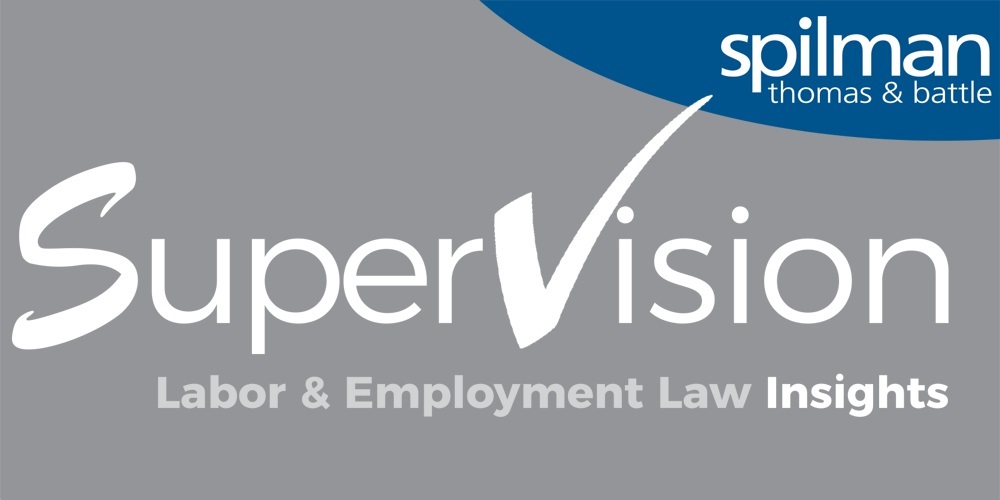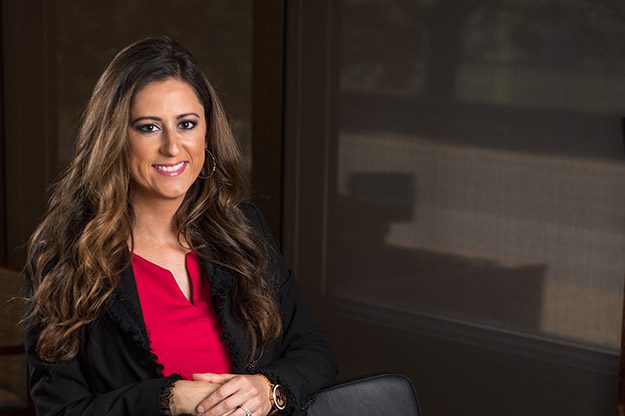Article
Resources
Article
West Virginia's New Intermediate Appellate Court Fundamentally Changes Workers' Compensation Litigation Practice

The 2021 West Virginia Legislative Session produced a major change for West Virginia workers’ compensation litigation in the West Virginia Appellate Reorganization Act of 2021. Specifically, Senate Bill 275 was enacted to create an Intermediate Court of Appeals for West Virginia. It also eliminates the Workers’ Compensation Office of Judges (“OOJ”) and establishes the West Virginia Workers’ Compensation Board of Review (“BOR”) as the initial reviewing body for objections to decisions made by insurers regarding workers’ compensation claims.
After June 30, 2022, the OOJ will be eliminated, and, effective July 1, 2022, all powers and duties of the OOJ will be transferred to the BOR. (W. Va. Code § 23-1-1h.) After this date, all objections to decisions of the Insurance Commissioner, private carrier, or self-insured employer, must be filed with the BOR instead of the OOJ. The BOR will have exclusive jurisdiction to review objections to a decision of the Insurance Commissioner, private carrier, or self-insured employer. Instead of the three-member panel currently comprising the BOR, the BOR will consist of five members appointed by the Governor.
The OOJ officially will terminate on or before October 1, 2022. On or before September 30, 2022, the OOJ must issue a final decision or otherwise dispose of each matter pending before the OOJ. If a final decision on any pending matter before the OOJ has not been entered at the time of the OOJ’s termination, that matter will be transferred to the BOR. For transferred matters, the BOR will adopt any existing records of proceedings from the OOJ, conduct further proceedings, and collect evidence necessary to issue a final decision. The BOR must review and decide all remaining appeals filed with the BOR regarding OOJ decisions issued prior to June 30, 2022.
The chair of the BOR shall assign, on a rotating basis, a member of the BOR to preside over the review process and issue a decision in each objection (formerly referred to as a “protest”) properly filed with the BOR. That board member may delegate his or her duties to a hearing examiner employed by the BOR, but any order or decision of the BOR (except time frame orders, continuance orders, etc.) must be issued and signed by the BOR member assigned to the objection. Hearing examiners must be persons admitted to the practice of law in West Virginia with at least four years of experience as an attorney. The chair of the BOR will supervise hearing examiners. If a hearing examiner is assigned to review an objection, the hearing examiner will submit the designated record at the end of the review process to the member of the BOR who was assigned the objection, along with the hearing examiner’s recommendation of a decision affirming, reversing, or modifying the action protested. The board member will render a decision with findings of fact and conclusions of law.
An appeal from a BOR decision may be filed with the West Virginia Intermediate Court of Appeals within 30 days of receipt of notice of the BOR decision or within 60 days of the date of the decision, regardless of notice. Any employer, employee, claimant, dependent, or the Insurance Commissioner, private insurer, or self-insured employer aggrieved by a BOR decision has a right to appeal to the Intermediate Court by filing a written notice of appeal stating the grounds for review and whether oral argument is requested. A filing fee of $200 may be charged to the petitioner. Upon appeal to the Intermediate Court, the Workers’ Compensation BOR will then send a transcript of BOR proceedings to the Intermediate Court, including a brief recital of the proceedings in the matter and each order or decision entered.
The WV Intermediate Court of Appeals will have exclusive jurisdiction of:
- Decisions or orders issued by the OOJ after June 30, 2022 and prior to the OOJ’s termination, and
- Final orders or decisions issued by the BOR after June 30, 2022.
The Intermediate Court may affirm, reverse, modify, or supplement the decision of the BOR. It may also remand the case for further proceedings. A decision of the BOR will be reversed, vacated or modified if the substantial rights of the petitioner have been prejudiced because the BOR’s findings are:
- In violation of statutory provisions;
- In excess of the statutory authority or jurisdiction of the BOR;
- Made upon unlawful procedures;
- Affected by other error of law;
- Clearly wrong in view of the reliable, probative, and substantial evidence on the whole record; or
- Arbitrary or capricious or characterized by abuse of discretion or clearly unwarranted exercise of discretion.
An appeal of the Intermediate Court’s final decision may be sought by petition to the Supreme Court of Appeals of West Virginia. The Supreme Court has discretion to grant or deny the petition for appeal of an Intermediate Court decision.
The Intermediate Court will be comprised of a three-judge panel. Initially, the judges will be appointed by the Governor, with the advice and consent of the Senate. Then, after the initial appointment by the Governor, the judges will be elected. The judges of the Intermediate Court must be members in good standing of the West Virginia State Bar, admitted to practice law in West Virginia for at least 10 years prior to their appointment or election, and also be residents of West Virginia for five years prior to appointment or election.
This new legislation impacts workers’ compensation in several ways. Eliminating the OOJ potentially eliminates experienced administrative law judges with significant knowledge (15-25 years) in workers’ compensation jurisprudence, and the practice in West Virginia. New practice and procedure rules before the new BOR provides uncertainty of what parts of the OOJ's rules of practice and procedure will be adopted. The BOR’s ability to hire hearing examiners with only four years of legal experience and without workers’ compensation litigation experience may be detrimental to decisions affecting claimants, employers and insurers. However, the hearing examiners’ recommendations are not final decisions and must be reviewed by the BOR members, and the BOR members must issue the final decisions. The hearing examiners also will be supervised by the BOR chair. Hopefully, this will prevent the issuance of uneducated decisions. Additionally, the new implementation of a $200 filing fee for appeals to the Intermediate Court likely will discourage claimants from appealing decisions of the Board of Review, which will decrease the overall number of workers’ compensation appeals.
The current BOR has asked the West Virginia State Bar Workers’ Compensation Committee for suggestions on revisions to the procedural rules for litigating claims outlined in West Virginia C.S.R. §§ 93-1-1 through 93-1-21. Specifically, the BOR has asked practitioners for input and suggestions for improving the litigation process. The BOR expressed concern with the current lack of use of mediation in workers’ compensation claims, and has asked practitioners to provide insight on the reasons mediation is not often utilized. The BOR has indicated electronic filing should be implemented effective July 1, 2022. However, there is concern about the ability of pro se claimants to utilize the electronic filing process and attend virtual hearings. In regard to virtual hearings, the BOR is considering the pros and cons of continuing virtual hearings in the post-pandemic era. Concerns also have been raised regarding the current expedited hearing process, as well as the Occupational Pneumoconiosis Board process, due to issues with the ability to refer to documents and evidence when these hearings are held virtually.
In addition to these changes, workers’ compensation practitioners in West Virginia are expecting an update to a workers’ compensation rule, which addresses the entities that are required to carry West Virginia workers’ compensation insurance coverage and which individuals are considered employees entitled to benefits. This rule requires updating because of the passage of Senate Bill 272, which creates the “West Virginia Employment Law Worker Classification Act” that implements a new test for determining who is an “independent contractor” in West Virginia for purposes of workers’ compensation and other areas of the law. This new “independent contractor” test will replace the current test for determining “independent contractor” status currently found in W. Va. C.S.R. § 85-8-6.2. The West Virginia Employment Law Worker Classification Act became effective June 9, 2021.
In regard to the updates of the workers’ compensation rule, the West Virginia Offices of the Insurance Commissioner (“WVOIC”) has proposed specific changes. One such proposed change is clarification of the “employee” definition to make it clear that an employee is not someone hired/classified as an independent contractor pursuant to the new law and the test for classification of independent contractors now found in W. Va. Code § 21-5I-4. “Independent contractor” will be defined as a person classified as an independent contractor pursuant to the West Virginia Employment Law Worker Classification Act and its test for classification of independent contractors.
Most substantively, the WVOIC has proposed to change W. Va. C.S.R. § 85-8-6.2 regarding independent contractors to state that a West Virginia workers’ compensation insurance policy is not required to cover “independent contractors” as that type of worker is defined pursuant to the test established in West Virginia Employment Law Worker Classification Act. Also, self-insured employers will not be required to provide workers’ compensation coverage to independent contractors. Additionally, a person will not be able to be simultaneously considered an “employee” and an “independent contractor” for the same employer at the same time.
Another proposed change is that an employer will not be required to classify a worker as an independent contractor if the employee meets the criteria in the new law; the employer may choose to hire the worker as an employee, but the terms should be set forth at the outset to eliminate any confusion about the worker’s status. Finally, independent contractors will not be covered under Chapter 23 of the West Virginia Code, and they will not be eligible for benefits under the Workers’ Compensation Uninsured Employer Fund.
Before these changes can be made they will be presented to the West Virginia Secretary of State for formal public comment and a public hearing will be held at an Industrial Council meeting. Because workers’ compensation rules are legislatively exempt, the Industrial Council must approve the rule amendments before they take can effect. The WVOIC intends to submit the changes for public comment this summer and hold the public hearing at the August 2021 Industrial Council meeting for approval of the changes.
Please contact us if you have any questions.



